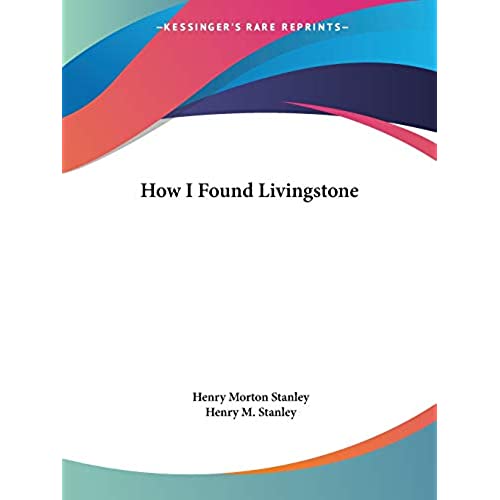

How I Found Livingstone
-

Victoria
> 24 hourExcellent,exciting,and touching. History at its best by the participants. I only wish there had been an update included to know what eventually happened
-

Andrea Heyser
> 24 hourDr. Stanley went through a thousand villages to get to Livingstone and wrote a chapter on each one. At the time the book was written cruelty was the norm and it hurt to read it. It was interesting to read the thoughts of that day however.
-

Ron Ingram
> 24 hourGood reading.
-

Bob Collins
> 24 hourAbsolutely excellent. The writing is quite excellent and the story the same. It is an adventure story worth reading
-

JACK SMYTHE
> 24 hourI purchased this book in he hopes of learning about these two interesting characters but was left empty handed, so to speak, due to the period writing style. I guess Im not cultured enough to appreciate the style. I hope to find another book about the two that will quench my curiosity in a more readable manner.
-

Robin
> 24 hourAfrican history without the politcally correct filter. Written in a 19th century style that tells of the trials of safari in early Africa
-

Jere A. Houser
> 24 hourReading this is almost like being with Stanley on his hunt for Livingston. If anyone saw the movie with Spencer Tracy, dont expect the book to be similar.
-

By CJs Pirate
> 24 hourIve had this eBook a long time. Im still only 40% into it. Its slow reading - more because Im easily preoccupied by fun things such as playing the Pinball Arcade than continuing to read. However, it IS interesting. Sure, its self serving, but what To Me, From Me, Love Me book isnt? Its rather fun to see and read about the Victorian attitudes of the day. NAACP, ACLU and half a dozen other abbreviations would haul your heinie in court and sue you to the moon and back if thats how you acted now.
-

Irene Burke
> 24 hourGreat reading. What a lot of dangers and deprivations Mr. Stanley went through in those early stages of Africa,
-

Kindle Customer
> 24 hourI am deeply amazed at the dedication and fortitude of these men. Their courage and strength of character are truly astounding. An intricate look at history and the thirst for knowledge. I have been humbled by this whole reading experience. I view our world through different eyes. I mourn the passing of men of this nature, the pure scholars.. How would they view our world now?
